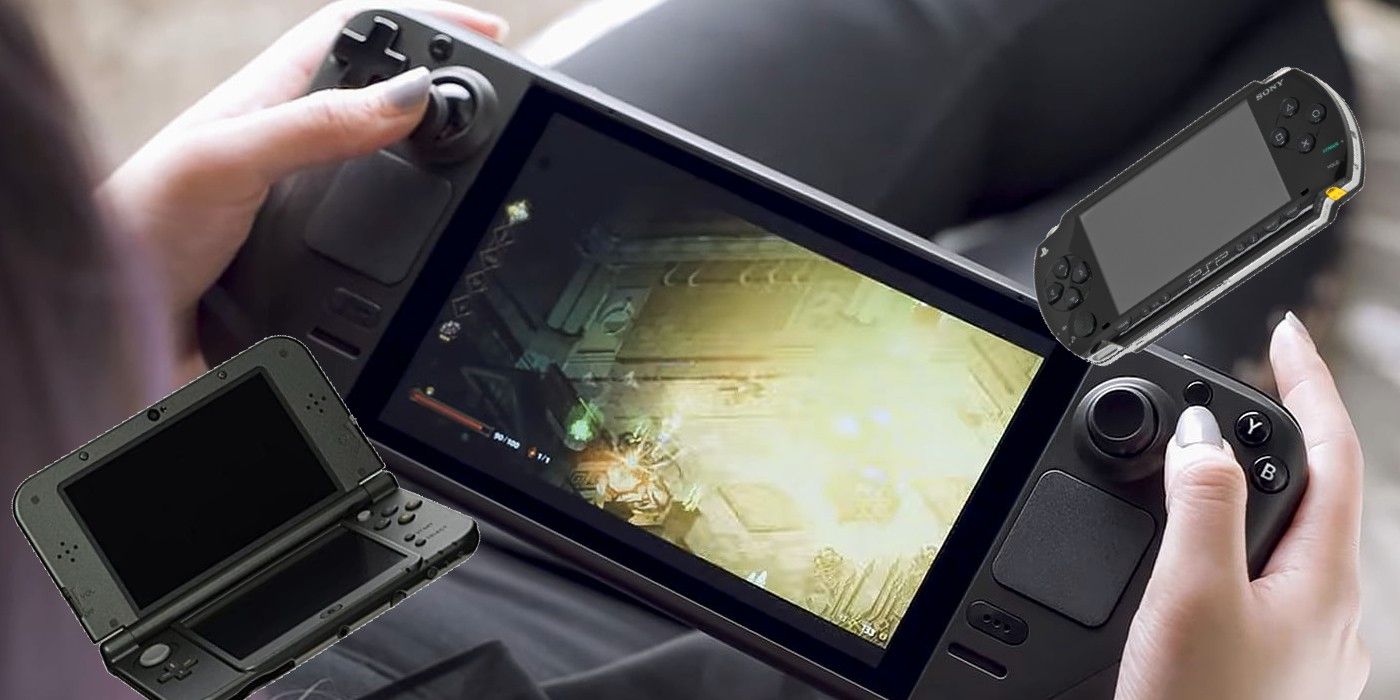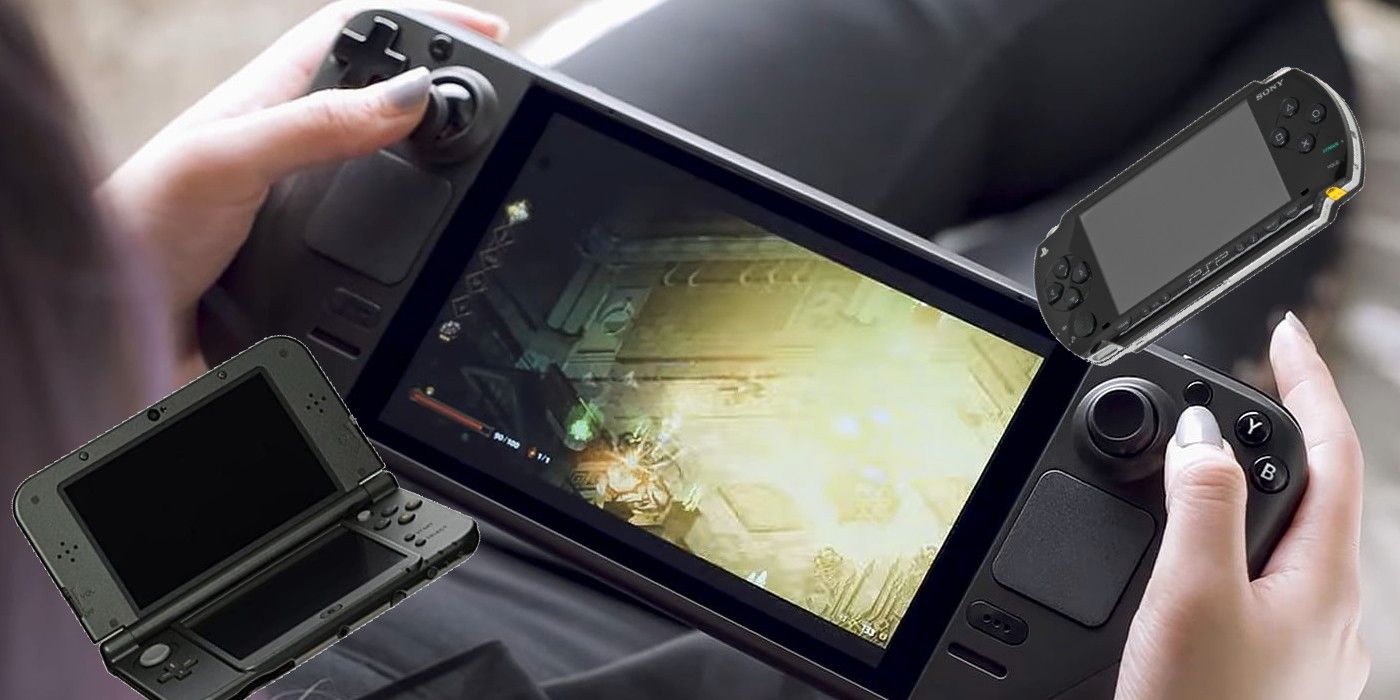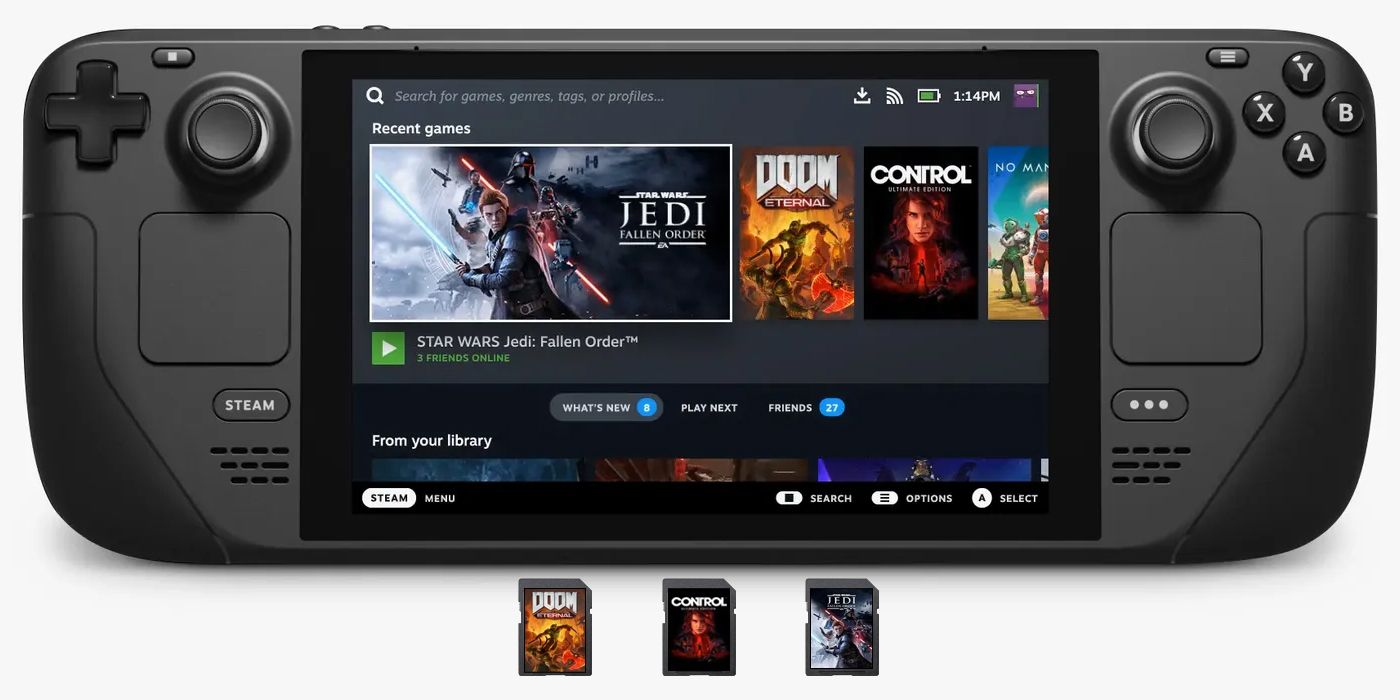

Valve's upcoming Steam Deckis looking to enter into the handheld gaming market later this year. Portable gaming has long been dominated by Nintendo, with the Switch being the clearest modern example. Handheld consoles like the DS and 3DS preceded the Switch with serious worldwide success, and at the time there were few other alternatives. If the Steam Deck becomes successful, as it likely will, the arrival of a new portable console could shake up that market in a big way.
Portable gaming has long been a big part of the industry. The mainstream success of the GameBoy, the DS/3DS, and the PSP showed that many players like the ability to take their games on the go. Hardware limitations also inspired a lot of creativity, especially with Japanese developers. The DS/3DS specifically are chock full of JRPGs and other titles that utilized the unique hardware and experience of portable gaming in innovative ways. The Switch has continued that legacy, and the Steam Deck is looking to compete in that space. It will have stiff competition from the Switch and mobile devices, but its distinctly PC-based approach to gaming could bring serious success.
RELATED: Here's the Steam Deck Size Compared to the Nintendo Switch

The impact of gaming of mobile gaming is definitely a factor in the equation of the change in portable gaming. Many casual players see their smartphone as the obvious way to play games considering that they likely already have the device. Simple and free titles have dominated that arena, bringing in people who had never even played a game before. This was part of why the portable market had somewhat stagnated before the release of the Switch. However, there's a strong contingent of players who still feel the handheld console delivers a uniquely impactful experience. Valve is likely banking on those individuals, and the Steam Deck could invigorate the handheld market in a big way.
If the Steam Deck and its powerful PC approach to gaming prove to be a hit, But creating more competition for Sony and Microsoft, which have only begun to enter the PC arena in recent years. The industry giants are likely taking a similarly hard look at the Steam Deck and could inspire them to enter (or re-enter) the portable console market.
Of the "Big Three" console companies, Sony is the only entity other than Nintendo to have taken chances on handheld consoles. The PSP was successful and featured many classic titles running the gamut of genres like FF7: Crisis Core and Grand Theft Auto titles. Its follow-up, the PS Vita, on the other hand, didn't see the same level of adoption. Many features didn't work quite as well as promised and its library never really saw any big hits. If the Linux-based Steam Deck does well, Sony may well consider entering the handheld space again. Many modern consoles use the Linux operating system, so from a technical standpoint, it's not hard to imagine. Microsoft considering the idea of a handheld has particular possibilities as well.
RELATED: Steam Deck Popularity Leads to Rise in Linux Usage

One thing that's got fans excited about the Steam Deck is its overall nature as a handheld PC. Valve has stated the system can run Windows 10, meaning that it's entirely possible that Xbox Game Pass for PC could work on the Steam Deck. If that proves to be true, then it could be a game-changer for the hardware. It might behoove Microsoft to avoid that and enter the market on its own. Microsoft already produces many versions of portable PCs with its laptops and 2-in-1 tablets, so imagining the monolithic company putting out some kind of handheld Xbox is both exciting and feasible. Although it's more likely that Microsoft will just sit back and enjoy the extra Game Pass subscriptions that would come with the Steam Deck if the service works.
The big draw of the Steam Deck—even if emulation doesn't work or its instance of Windows 10 won't support Game Pass—is the massive library of games already on Steam. That could be a big factor in whether Microsoft considers producing its own handheld. Xbox Game Pass also boasts a massive catalog of games for its subscribers and includes discounts on purchasing those games for when they leave the service. Especially with how many first-party games have come to Game Pass, the idea of taking major releases like Halo Infinite or strategy games like Gears Tactics on the go would be very appealing to many Xbox fans.
There could be a potential downside to the Steam Deck's success, however. There's already a relatively substantial market for off-brand handheld devices. The simplicity of computing devices like Raspberry Pi and the ever-shrinking costs of 3D printing have made it very easy to create custom, unlicensed handhelds. Loading an emulator and ROMs onto a Raspberry Pi that cost $20 into a shell that cost literal pennies to produce is going to be an appealing market for some. While many of these devices are created in good faith, the potential for scam products is huge. Selling a fake Steam Deck that isn't compatible with VR or doesn't support the same games would be a detriment to every involved party except the scammer.
It's worth noting that this market already exists and is an inevitable competitor for Valve's upcoming handheld console. That being said, the probable success of the Steam Deck will likely lead to an uptick in these kinds of practices. Many players are frugal with their choices, so there's always the appeal of a cheaper product. The other segment of the populace to be hit by scam products would be parents or grandparents that aren't as savvy about this kind of scam that might confuse a knock-off product for the real thing and then be stuck with a purchase they can't work with. Even its main competitor the Switch will be looking closely at the Steam Deck, so it's likely that many individuals will see the new platform as an opportunity for ill-gotten profit.
Overall, with the Steam Deck's unique advantages over other handhelds and the excitement about the system, it's likely that Valve's new hardware will have some long-term impact on the market as a whole.
The Steam Deck is set to release December 2021.
MORE: Gabe Newell Has Been Testing the Steam Deck by Playing DoTA 2



